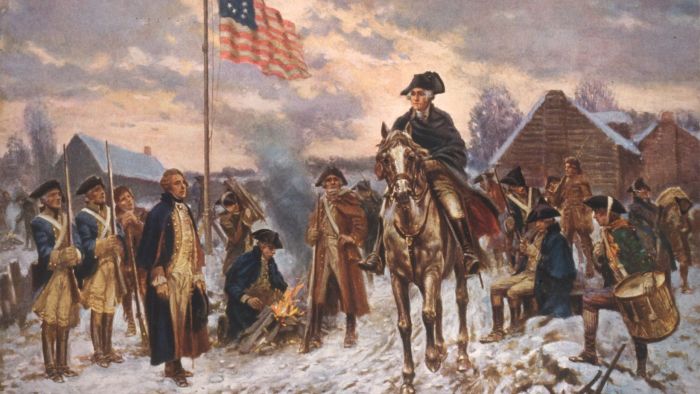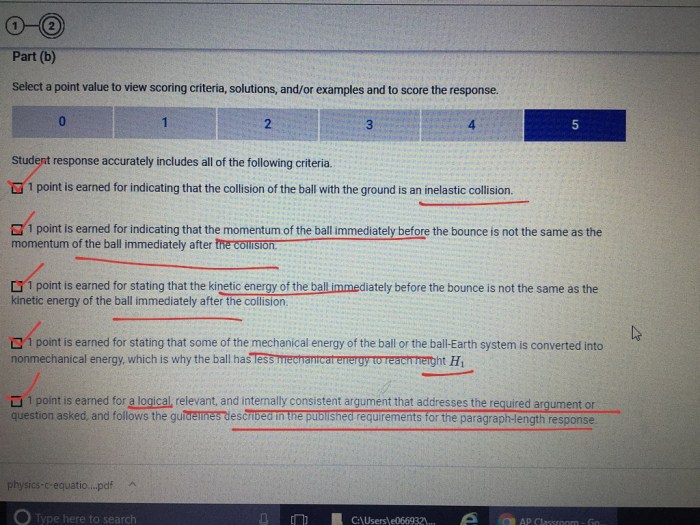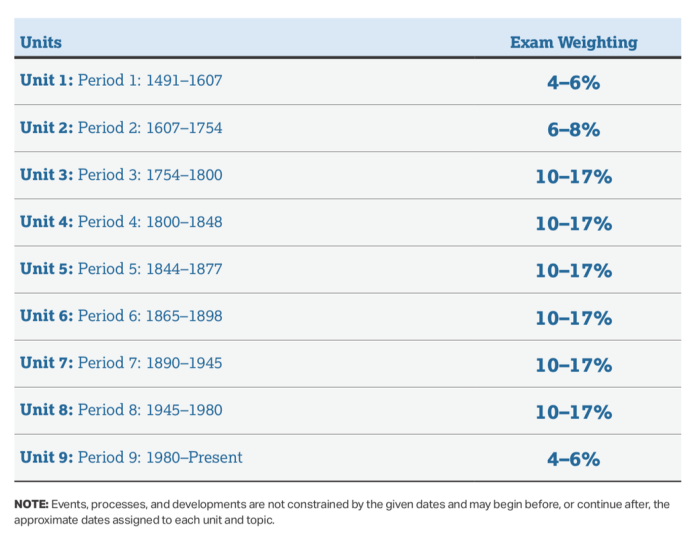Embark on a historical journey with the APUSH Unit 2 Progress Check! This comprehensive guide will illuminate the key concepts, strategies, and resources you need to conquer this assessment and deepen your understanding of American history.
Delve into the historical context, explore the central themes, and uncover the effective strategies that will empower you to excel in the Progress Check. Let’s dive right in!
APUSH Unit 2 Progress Check

The APUSH Unit 2 Progress Check is a diagnostic assessment designed to evaluate students’ understanding of the key concepts and historical events covered in Unit 2 of the APUSH curriculum. It serves as a valuable tool for students to identify areas where they excel and areas where they may need additional support.
Content Areas Covered
The assessment covers a wide range of content from Unit 2, including:
- The causes and consequences of the American Revolution
- The creation and ratification of the U.S. Constitution
- The development of political parties and the emergence of the two-party system
- The westward expansion and the impact of westward migration
- The causes and consequences of the War of 1812
Assessment Format and Question Types
The APUSH Unit 2 Progress Check typically consists of multiple-choice questions, short answer questions, and essay questions. The multiple-choice questions assess students’ knowledge of specific facts and concepts, while the short answer questions require students to demonstrate their understanding of broader historical themes.
The essay question allows students to demonstrate their ability to analyze historical events and develop well-supported arguments.
Historical Context of APUSH Unit 2

APUSH Unit 2 covers the period from the colonial era to the American Revolution, a transformative era marked by significant historical events and themes.
If you’re looking for a way to improve your APUSH Unit 2 progress check score, you might want to check out this article on circle in a square codehs . It provides some great tips on how to improve your understanding of the material and boost your score.
Once you’ve read the article, be sure to come back here and take another progress check to see how much you’ve improved.
Major turning points include the establishment of the thirteen colonies, the French and Indian War, and the Declaration of Independence. Key individuals include George Washington, Thomas Jefferson, and Benjamin Franklin.
Social Changes
- Emergence of a diverse colonial society, including European settlers, Native Americans, and enslaved Africans.
- Development of a distinct American identity, shaped by shared experiences and values.
- Growing tensions between colonists and British authorities over issues of governance and taxation.
Economic Changes
- Establishment of a plantation economy in the South, based on the cultivation of cash crops like tobacco and cotton.
- Growth of trade and commerce, particularly with Britain.
- Expansion of slavery as a major economic institution.
Political Changes
- Establishment of colonial governments modeled on British institutions.
- Growing dissatisfaction with British rule, leading to the formation of the Continental Congress.
- Declaration of Independence in 1776, marking the beginning of the American Revolution.
Key Concepts and Themes in the Progress Check

The APUSH Unit 2 Progress Check assesses students’ understanding of the fundamental concepts and themes that shaped American history from the colonial era to the early republic. These concepts and themes provide a framework for understanding the events, ideas, and people that influenced the development of the United States.
The Impact of Enlightenment Ideals
The Enlightenment, a European intellectual movement of the 18th century, emphasized reason, individualism, and the importance of natural rights. These ideals had a profound impact on the American colonies, inspiring the colonists to question traditional authority and assert their own rights and freedoms.
- Example: The Declaration of Independence, written by Thomas Jefferson, reflects Enlightenment ideals by asserting that all men are created equal and have the right to life, liberty, and the pursuit of happiness.
The Role of Colonial Institutions and Structures
The colonial period was characterized by the development of unique institutions and structures that shaped the American experience. These institutions, such as town meetings, colonial assemblies, and religious organizations, provided a foundation for self-government and democratic practices.
- Example: The Mayflower Compact, signed by the Pilgrims in 1620, established a framework for self-government and the rule of law in the Plymouth colony.
The Causes and Consequences of the American Revolution
The American Revolution was a pivotal event in American history that resulted in the colonies’ independence from Great Britain. The progress check assesses students’ understanding of the complex causes of the revolution, including political, economic, and social factors.
- Example: The Stamp Act of 1765, which imposed a tax on printed materials, sparked widespread protests and helped to galvanize support for independence.
The Creation of the American Republic, Apush unit 2 progress check
After the American Revolution, the newly independent states faced the challenge of creating a new government. The Articles of Confederation, the first attempt at a national government, proved to be weak and ineffective. The Constitutional Convention of 1787 produced the U.S.
Constitution, which established a stronger federal government based on the principles of federalism and separation of powers.
- Example: The Great Compromise, reached at the Constitutional Convention, resolved the issue of representation in Congress by creating a bicameral legislature with the House of Representatives based on population and the Senate with equal representation for each state.
The Significance of Understanding These Concepts
Understanding these key concepts and themes is essential for historical analysis because they provide a framework for interpreting the past and understanding the present. By comprehending the Enlightenment ideals, colonial institutions, causes of the American Revolution, and creation of the American republic, students can gain a deeper appreciation for the historical foundations of the United States.
Strategies for Success on the Progress Check: Apush Unit 2 Progress Check

To excel on the APUSH Unit 2 Progress Check, effective preparation and test-taking strategies are crucial. This section provides guidance on how to prepare efficiently, analyze sources, develop historical arguments, and manage time effectively during the exam.
Reviewing Content
Thoroughly review the course material, focusing on key concepts, events, and people from Unit 2. Utilize textbooks, class notes, and online resources to reinforce your understanding. Consider creating flashcards or concept maps to aid memorization and recall.
Analyzing Primary and Secondary Sources
Practice analyzing primary and secondary sources. Identify the author’s perspective, purpose, and biases. Evaluate the reliability and usefulness of sources by considering their origin, context, and limitations.
Developing Historical Arguments
Develop the ability to construct historical arguments that are supported by evidence from multiple sources. Identify a clear thesis statement, gather relevant evidence, and organize your argument logically. Practice writing historical essays or paragraphs to improve your writing skills.
Time Management and Test-Taking Strategies
Time management is essential during the exam. Allocate time wisely for each question and avoid spending too much time on any one section. Utilize test-taking strategies such as underlining key terms, highlighting important passages, and answering the easiest questions first.
Sample Questions and Analysis

To enhance your understanding of APUSH Unit 2, let’s explore sample questions and their analysis, highlighting the key concepts and skills required for success on the Progress Check.
Analyzing Historical Sources
- Identify the author’s purpose and bias in a historical document.
- Explain how the author’s perspective and experiences shape the information presented.
- Evaluate the credibility and reliability of a historical source.
Interpreting Historical Events
- Describe the causes and consequences of a specific historical event.
- Analyze the impact of individuals, ideas, and institutions on the course of events.
- Explain how historical events connect to broader historical themes and trends.
Historical Context and Chronology
- Place historical events in chronological order and explain their significance.
- Identify the major themes and trends that characterized a specific historical period.
- Understand the interconnectedness of events and their impact on historical outcomes.
Resources and Study Materials

To excel in the APUSH Unit 2 Progress Check, it is crucial to utilize a variety of resources and study materials. These materials will help you deepen your understanding of the content, practice your analytical skills, and gain confidence in your preparation.
Textbooks
Textbooks provide a comprehensive overview of the content covered in APUSH Unit 2. Consider using the following:
- The American Pageantby Thomas A. Bailey and David M. Kennedy
- American History: A Surveyby James L. Roark, Michael P. Johnson, Patricia Cline Cohen, Susan M. Hartmann, and Barbara H. Rosenwein
- Give Me Liberty!: An American Historyby Eric Foner
Online Resources
The internet offers a wealth of online resources to supplement your textbook learning:
- College Board’s APUSH Unit 2 Review: Provides an official review of the unit’s content and practice questions.
- Khan Academy’s APUSH Unit 2 Videos: Offers engaging video lectures and practice exercises.
- AP Central’s Document Library: Contains primary and secondary source documents related to APUSH Unit 2 topics.
Practice Tests
Taking practice tests is essential for assessing your progress and identifying areas for improvement:
- College Board’s APUSH Practice Tests: Provides official practice tests with answer keys and explanations.
- Princeton Review’s APUSH Practice Tests: Offers additional practice tests with detailed answer explanations.
- Kaplan’s APUSH Practice Tests: Provides a range of practice tests with varying difficulty levels.
Historical Documentaries
Historical documentaries can bring the past to life and enhance your understanding of the events and figures covered in APUSH Unit 2:
- The American Revolution(PBS)
- The Louisiana Purchase(History Channel)
- The War of 1812(National Geographic)
User Queries
What is the purpose of the APUSH Unit 2 Progress Check?
The APUSH Unit 2 Progress Check assesses your understanding of key historical events, themes, and concepts covered in Unit 2 of the APUSH curriculum.
How can I prepare effectively for the Progress Check?
Review course materials, analyze primary and secondary sources, practice writing historical arguments, and utilize effective time management strategies.
What types of questions can I expect on the Progress Check?
The Progress Check may include multiple-choice, short answer, and essay questions that test your knowledge of historical content and your ability to analyze and interpret historical evidence.